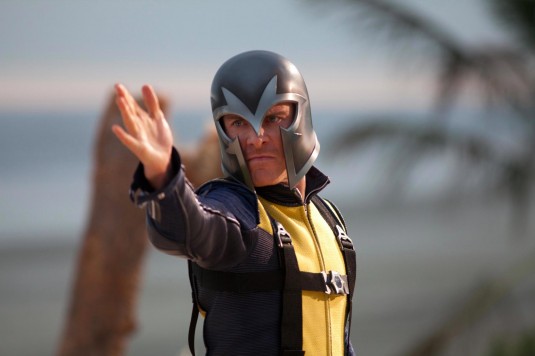LA Film Fest part two, by David Bax
First Cousin Once Removed
You’re Next remains the only actual horror film I’ve seen at the LA Film Fest this year but, along with The Act of Killing, Alan Berliner’s First Cousin Once Removed is one of the most horrifying. Berliner documented conversations he had with Edwin Honig (who is related to the director in the way the title explains) in the last years and months of his life as he suffered from Alzheimer’s disease.
Honig was an accomplished poet, translator, critic and professor who taught at Harvard and Brown and who was knighted by the heads of state of both Portugal and Spain. When you first see him in the film, you wouldn’t know that. In fact, he doesn’t even know that. Berliner starts very near the end of Honig’s life, when he can barely speak, let alone eat, rhythmically chanting nonsense sounds and staring, loose-gazed, out the window. From there he goes back to the beginning of filming, when Honig is still able to walk and talk but whose eyes immediately betray a lack of recognition when the cousin he’s known for so long comes to the door.
Berliner uses both discussions with Honig about sporadic memories and interviews with Honig’s friends and family to fill in the rest of his life. At times, it hardly seems like they’re talking about the same person, which seems get to the heart of Berliner’s driving query. Is a person with no memories of his past still the same person from that past? Or has that person been “removed”? It’s gutting to see someone who made a living translating great Spanish poets forget how to speak Spanish. It’s intriguing to wonder if his son should still hold a grudge against him when he has no memories of being a bad father. Conversely, there’s a sad comfort in seeing a man who always blamed himself for his younger brother’s death forget that he ever had a brother at all.
Up to the end, or at least as long as he can still speak, Honig manages to speak occasionally in the phrasing of a poet. I’m not sure, though, if it’s a happier or scarier thought that there’s a bit of him still trapped underneath his failing mind.
The Women and the Passenger
Valentina Mac-Pherson and Patricia Correa’s The Women and the Passenger is a specific look at a subculture about which I know nothing. Whether that’s because I don’t live in Chile or because I’m just not aware of it here, I can’t say. I know nothing, remember?
Taking place entirely within a Chilean sex hotel, the documentary consists almost solely of interviews with the establishment’s all-female cleaning staff. We also see a bit of the clients (never their faces) as they enter and exit the rooms. The filmmakers clearly took their time setting up the shots, sometimes making them seem like the alluringly themed escapes they’re meant to represent and sometimes depicting the way they look to the maids, hazardous sites in need of a good wiping down.
The hotel and its rooms, however, is not the focus. The women who clean them are. A number of them are middle-aged and many appear to come from traditional families in the 70% Catholic country. One woman admits that it was many months into her marriage before her husband saw her naked with the lights on. Yet they offer almost no judgment of the people and behavior going on around them. Sometimes they giggle and exchange glances in response to the moans that emanate through the doors. But, at other times, they hardly seem to notice them. Though one woman observes that casual sex is not love, more than one other interviewee implies that sex between people in love can be as adventurous as the casual variety. Whether these women feel this way because of where they work or they work where they do because of how they feel, the movie is a well-done, funny look at the relationship between modern sex and traditional culture and how they don’t necessarily have to clash.
Two Men in Manhattan
I’m not sure that Jean-Pierre Melville’s Two Men in Manhattan is an accurate depiction of New York City in 1958. It’s true that the exteriors were shot on location – the only time Melville filmed in this country – but it feels more like a romantic dream of the city than a document. This is a city where there’s an open seat and waiting bartender at every watering hole; where the band is always playing music that fits your mood precisely; where there are enough cars to give the city the slick, shiny reflections it needs but not so many that there isn’t always a parking spot waiting right outside your destination. It’s the kind of place where, if you need to meet with an actress who is appearing on Broadway, you can walk right in the stage door and proceed backstage, arriving just as the intermission is beginning.
There’s a story, of course, as well. When France’s ambassador to the United Nations go missing, the New York editor of Agence France-Presse sends one of his best reporters, Moreau (played by director Melville) out into the night to track down the story. Moreau enlists the aid of another French journalist, the seedy, unscrupulous photographer Delmas (Pierre Grasset), who is well-versed in the sordid nightlife of Manhattan (as well as Brooklyn, in a trip to a rough and tumble burlesque club).
By the end of the film, a theme has emerged – perhaps even a moral – about journalistic ethics. But that’s plainly not Melville’s interest. He just wants to immerse us in the mood of endless night in the city that never sleeps, sliding from taxi to taxi, from smoky bar to backstage dressing room. Melville’s New York is a place where danger is always in the air but let’s not get too worked up about it, man. Light another cigarette, have another drink and let’s see what’s around this next corner.
The House That Jack Built
The title is a misnomer. Jack didn’t build the house, he bought it. And it’s not a house, it’s an apartment building. In a way, though, Jack was responsible for the construction of his and his family’s situation. He is a young man when we meet him, the youngest not only of his siblings but of his cousins as well. Still, he’s made more money than any of them thanks to his booming illegal drug trade and he’s purchased the building so that his whole family can stay together. As he’ll find out, though, having money doesn’t mean you can force people to be the way you want them to.
Director Henry Barrial should be credited foremost with the decision to cast E.J. Bonilla in the title role. Jack is the focal point of nearly every scene and Bonilla not only keeps things moving and engaging, he also displays the magnetism and charisma that convinces you his whole family would be willing to go along with his plans. The rest of the cast, while not all on par with Bonilla, seem nevertheless to take their cues from him, making for a largely naturalistic and buoyant experience.
Unfortunately, as the film progresses, that sense of ease is overtaken by convoluted melodrama. A plot involving a rival drug dealer leads things down a regrettably formulaic path. And the character of Jack’s older brother, Ritchie (Leo Minaya), whose marital struggles early on illustrate the theme of trouble in (Jack’s) paradise, transforms into a clichéd plot device. By the end, it almost feels as if we’ve been tricked. The personal family drama we were promised has become a movie of the week.
































